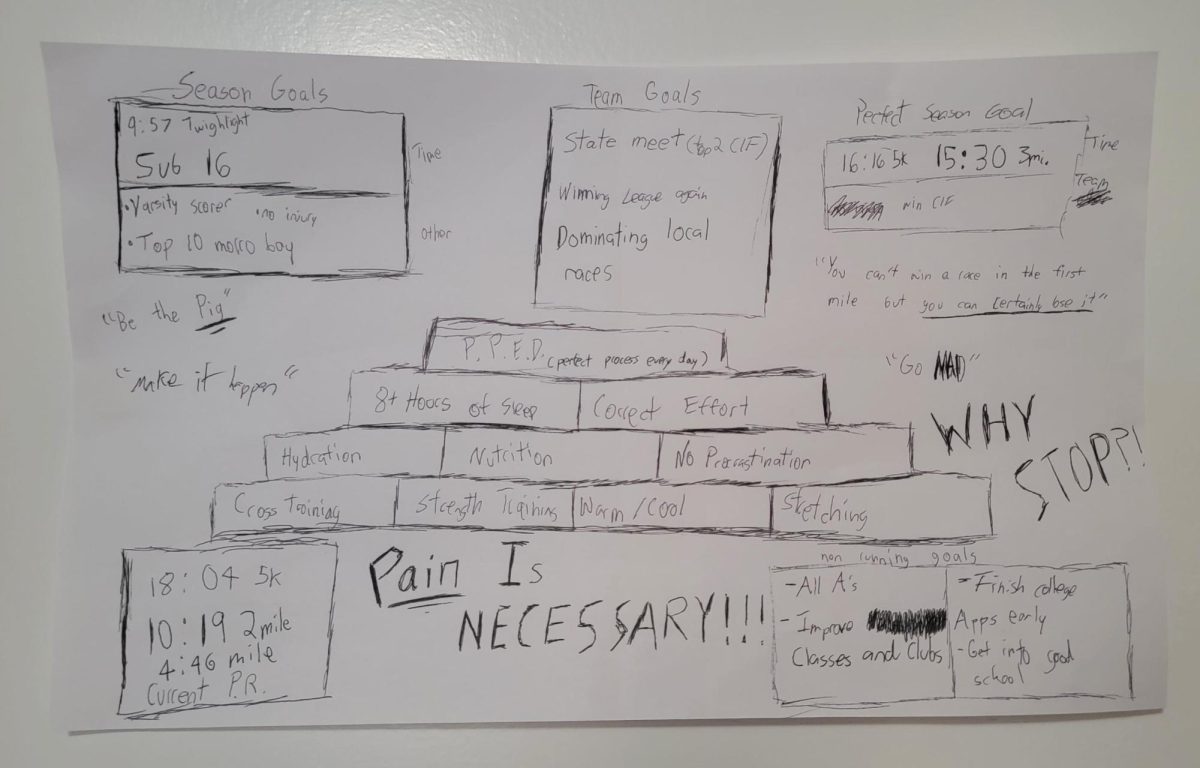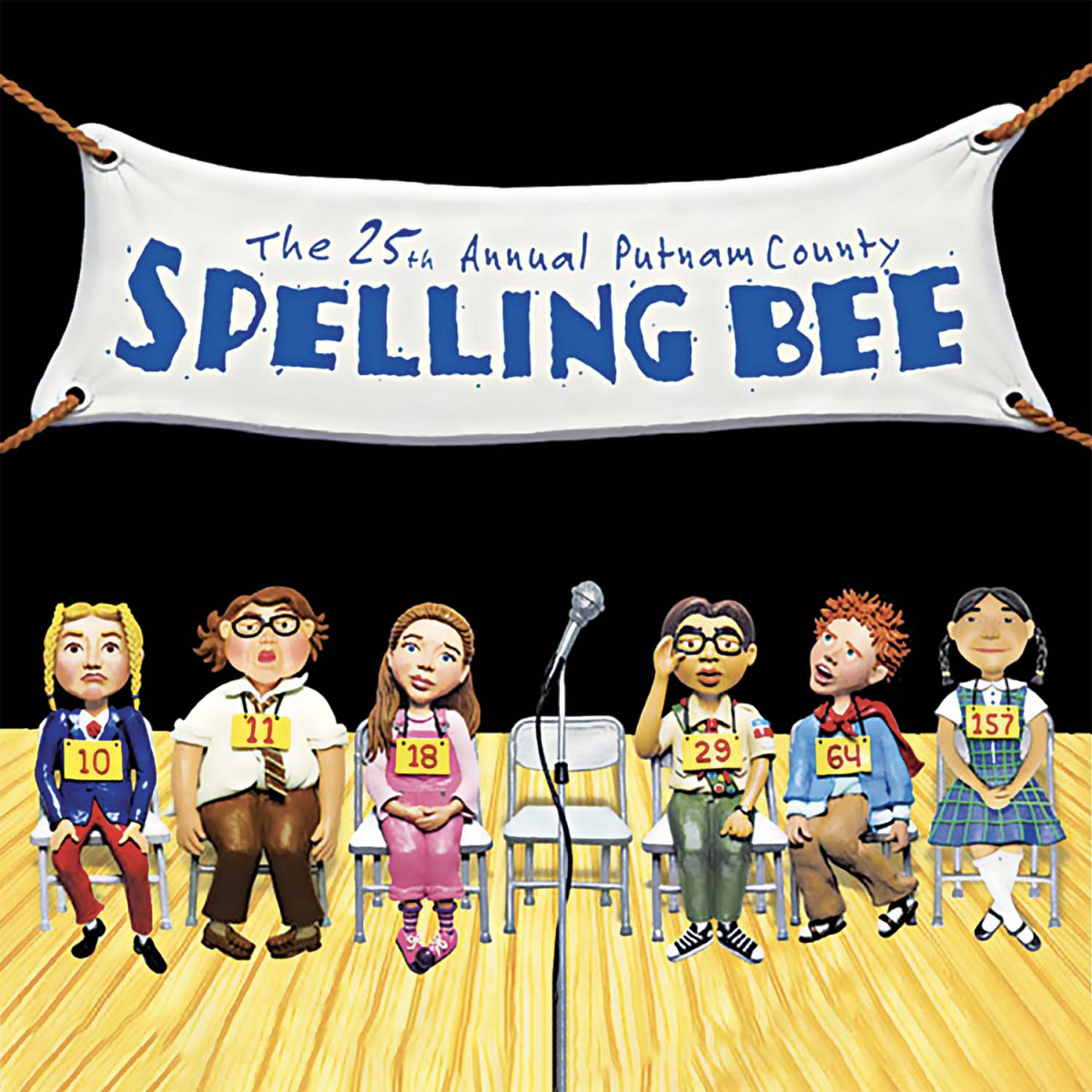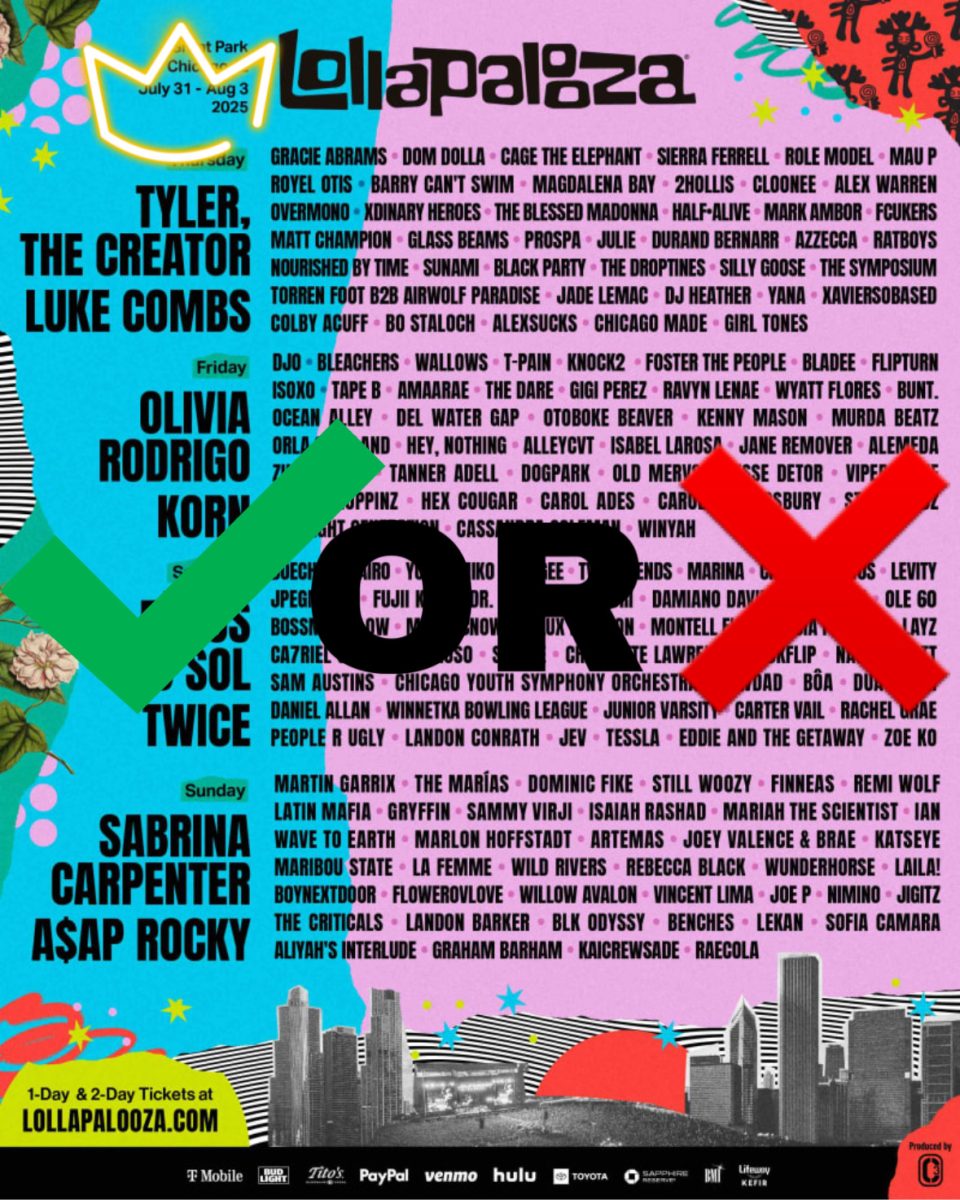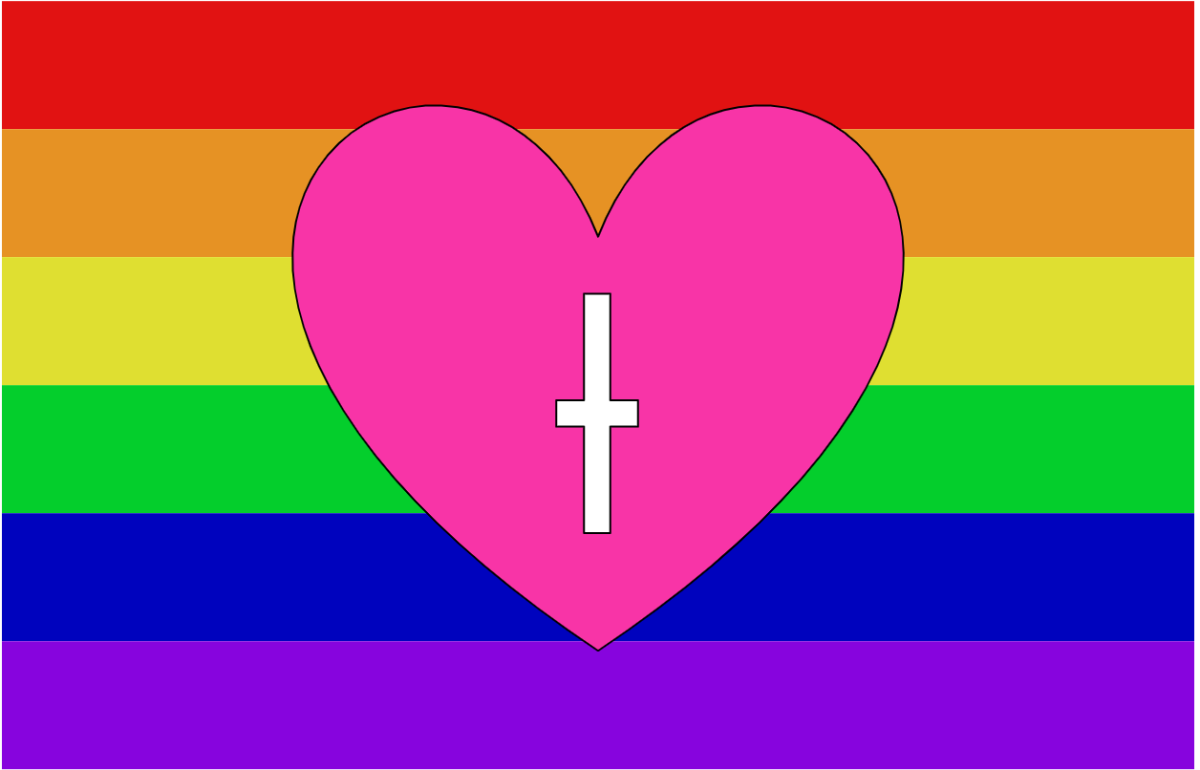Christianity and queerness are not mutually exclusive. Illustration courtesy of freshman reporter Charly Elston.
Homophobia, transphobia, and other types of queerphobia are often justified by religious means, and San Luis Obispo High School students have no doubt noticed this. Despite the popular religious justification, this is not only hateful and ridiculous, it makes very little sense under scrutiny.
There are no means to justify queerphobia, religion certainly not one of them.
“I think the [idea] that homosexuality and queerness is inherently wrong and impure or a sin, doesn’t come from the Bible persay, rather the biased interpretation of a book that is centuries old,” said freshman Vyolet Burrus.
Firstly, following a centuries-old book as a basis on what is moral and what is not is problematic in itself. There’s nothing wrong with using certain passages, and there’s nothing wrong with being religious. But when used to justify hatred, it’s being used for the wrong reasons.
People who use it for hatred disregard other passages, and are selective on what they follow. “The Bible strictly forbids eating rabbit, shellfish, pork, weasels, scavengers, reptiles, and owls,” according to an article titled “11 kinds of Bible verses Christians love to ignore” on salon.com.
Those who are selective on passages they decide to follow aren’t trying to follow the Bible. They’re trying to justify their hatred of queer people.
The most ironic part?
The passage mentioning homosexuality is regarded to as a misinterpretation by many and wasn’t even in the Bible until 1946.
The Greek word “αρσενοκοιται” in the Bible was never translated to mean “homosexual” until 1946, meaning it was in the Bible for thousands of years before it meant “homosexual”.
German versions of the Bible have the passage reading against pedophilia, rather than homosexuality.
So if someone’s using the Bible to justify their hatred, they’re not trying to follow it. They’re trying to give reasoning for their hatred.
Further, not all religious people interpret religious texts to be against homosexuality, it’s just the queerphobic religious people.
I would like to end this by saying that I don’t hold this perspective as a religious person, meaning I can’t speak to my own experiences with religion, as I haven’t had those experiences. However, I am in the LGBTQ+ community, and have observed religion being used to justify queerphobia. I don’t have anything against religion; I believe it can be a beautiful thing, unless it’s being used to justify hatred, then it’s being misused. I believe it doesn’t need to be used this way, and raising awareness that not all religious people use religious texts incorrectly. Most do, and don’t use it to excuse hatred. I’m addressing those who take it the other way, and use it to say why they’re better than other people, for things they can’t control.
If someone who is supposed to love all is reading a religious text to mean that certain people have committed sins because of something they can’t control, is that person using the text correctly?
Sources: salon.com, um-insight.net


































Jacob • Nov 16, 2022 at 3:34 pm
There are multiple things I’d like to point out which I disagree with you on in this article. Please consider this a respectful ‘rebuttal’ of some sorts and not an attack.
1. What is hatred?
An important thing to consider is whether or not considering homosexuality as a sin is hateful, a parallel would be lying being a sin (a commandment, meaning that it should be taken more harshly than homosexuality), yet nobody calls it hateful to consider lying a sin. The difference is how people respond to liars, if someone spits judgment instead of forgiveness as the bible commands people to, then yes it’d be hateful. There can be people who disapprove of something someone does yet still love them.
2. The passage mentioned
Yes, the word homosexual didn’t exist at the time so your explanation is very plausible for that, but that’s not the only place it’s mentioned. A different passage which doesn’t use the word you provided phrased it like this “You must not ·have sexual relations with a man as you would a woman” Leviticus 18:22. Notice how the word homosexual isn’t used at all here.
3. Things we can’t control
Two things worth noting, it is impossible for someone to never sin. This is because nobody is considered perfect in Christianity, but also most christians don’t perceive homosexual thoughts as sinful. That being said, it is possible to control whether or not you act on those thoughts, which is why some Christians end up abstaining from all relationships.
Richard B Karsh • Nov 16, 2022 at 12:31 pm
Charly-I have read and enjoyed several of your recent articles. I would note that, not only does the US constitution support “freedom OF religion”, based upon the religious (or nonreligious) beliefs of the “founding fathers”, it supports “freedom FROM religion” as well. A (probably apocryphal) story about the Jewish rabbi Hillel (who was perhaps a generation earlier than the historical Jesus: It is said that a man approached Hillel and indicated that he was trying to decide upon a religion but was, so far, unimpressed. He told the rabbi that if he could explain his religion while standing on one foot he would convert. Hillel stood on one foot and recited what we now call the “Golden Rule” (which, historically, was first defined by Hillel, although he didn’t call it the “Golden Rule”)…”Do unto others as you would have them do unto you.”, after which he appended, “the rest is commentary”.
A trivial note (I do some gamma reading for a couple of fantasy/sci-fi authors from time to time)-proofread carefully. “Persay” should be “per se” (from the Latin). Spellcheck is often wrong in spelling words or phrases that may or may not have the author’s intent. (Yes, I’m Karl’s dad.)